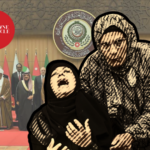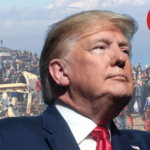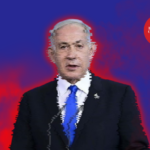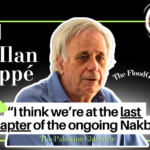The Palestine Papers: Offering Palestine, Selling Out Its Refugees
By Ramzy Baroud
The Palestine Papers had damaged whatever little credibility the Ramallah-based authority still enjoyed among Palestinians The Palestine Papers, the 1,300 leaked documents that Aljazeera began publishing starting January 23, are the Palestinian response to the Israeli ‘generous offer’, an Israeli diplomatic ruse that was aimed at discrediting Palestinian leader Yasser Arafat following the collapse of the Camp David talks of July 25, 2000.
But unlike the fictitious Israeli ‘generous offer’, the Palestinian offer, as revealed by Aljazeera, was barely a testament to the spirit of the famed Arab generosity, but a series of decided and embarrassing concessions that, at times, took even the Israelis by surprise.
Over a decade has passed since Israeli Prime Minister Ehud Barak reportedly made his ‘generous offer”, only to be met by “Arafat’s recalcitrance” (L.A. Times editorial, April 08, 2002) and “Palestinian rejectionism” (Mortimer Zuckerman, U.S. News & World Report, March, 22, 2002, as referenced by Seth Ackerman in Fair.org).
The invented offer, which turned out to be a term coined by Israeli officials merely to discredit Arafat and absolve Israel from any commitment under previously signed agreements, was described as “extraordinary and “far-reaching” by leading American newspapers. Every attempt at dispelling that myth largely failed before immovable US-Israeli official discourses, which often, if not always, define mainstream narratives.
But now Aljazeera had courageously followed in the footsteps of Wikileaks, verifying and revealing hundreds of documents, spanning from 1999-2010, which expose the extent of the Palestinians’ ‘generosity’, that is truly extraordinary and far-reaching, if not a cause of utter shame to many of those involved, along with their die-hard supporters.
What The Documents Reveal…
The Palestine Papers are too many and represent a final indictment of the PA, and its willingness to meet, and at times, exceed the expectations of the Israeli government, at the expense of the Palestinian people
The Palestine Papers revealed much about the skewed nature of the relationship between two parties – Israel and the Palestinian Authority – who are purportedly in a state of conflict, if not war. But as it turned out, the Palestinian leadership seemed to negotiate and offer the very opposite of what the Palestinian public truly wants, including the right of return for Palestinian refugees, as enshrined in international law, contiguous borders for the proposed Palestinian state, dismantling of all illegal Jewish settlements and more. The extent of the Palestinian compromises has in fact exceeded the most cynical of estimations.
According to one leaked document, Saeb Erekat for example who holds the weighty title of the ‘Chief Negotiator’, gave away most of Occupied East Jerusalem with little hesitance. On June 30, 2008, in a meeting that included Tzipi Livni, the then Israel foreign minister, Ahmed Qurei, top Fatah official and former PA prime minister, Erekat declared: “It is no secret that on our map we proposed we are offering you the biggest Yerushalayim (the Hebrew word for al-Quds or Jerusalem) in history.”
Erekat’s personal offer was an extension of one proposed by Qurei himself, in a meeting two weeks earlier, on June 15. Qurei “proposed that Israel annexes all settlements in Jerusalem except Jabal Abu Ghneim (Har Homa). This is the first time in history that we make such a proposition; we refused to do so in Camp David.”
To leave no doubt in Israeli officials minds that the Palestinians truly mean ‘all settlements’, Erekat “went on to enumerate some of the settlements that the PA was willing to concede,” reported Gregg Carlstrom in Aljazeera. They are “French Hill, Ramat Alon, Ramat Shlomo, Gilo, Talpiot, and the Jewish Quarter in Jerusalem’s old city. Those areas contain some 120,000 Jewish settlers. (Erekat did not mention the fate of other major East Jerusalem settlements, like Pisgat Ze’ev and Neve Ya’akov, but Qurei’s language indicates that they would also remain a part of Israel.)”
As for Haram al-Sharif, or the Noble Sanctuary (the third holiest of Muslim shrines anywhere and a sight that saw much violence as a result of desperate Palestinian attempts at defending the holy site in the face of Israel fundamentalists backed by Israeli army and police), Erekat offered ‘creative’ solutions, such as placing the Palestinian Muslim shrine under international supervision, thus ceding almost complete control over the occupied city.
This is barely the tip of the iceberg. The compromises are plentiful and brazenly contradict international law, Palestinian national aspirations, Arab consensus, and even the declared official position of the Palestinian Authority itself.
Selling Out the Refugees
The Palestine Papers also confirm that both sides are in agreement regarding the Palestinian people’s right to return, that, more or less, such a right will not be carried out. A summary of an August 2008 meeting indicated an Israeli offer of a land swap that would guarantee that the majority of illegal Jewish settlers remain in the occupied West Bank. It included a proposal by then Israeli Prime Minister Ehud Olmert to allow a total of 5,000 Palestinian refugees (out of nearly six million) to return to their homes over the course of five years.
In an October 21, 2009 meeting with US diplomat and Special Envoy to the Middle East George Mitchell, the Chief Palestinian Negotiator, Erekat seemed to have no qualms with the proposal. “Palestinians will need to know that five million refugees will not go back. The number will be agreed as one of the options. Also the number returning to their own state will depend on annual absorption capacity.” In another leaked document dated January 15, 2010, Erekat told US diplomat David Hale that the PA offered Israel the return of ‘a symbolic number’ of refugees. Until then, the refugees, according to Erekat will have no voting rights on any peace deal with Israel. Aljazeera also quoted Ziyad Clot, a legal adviser to Palestinian negotiators on refugee issues, saying: “President Abbas offered an extremely low proposal for the number of returnees to Israel a few weeks only after the start of the process.”
The Palestine Papers are too many and represent a final indictment of the PA, and its willingness to meet, and at times, exceed the expectations of the Israeli government, at the expense of the Palestinian people.
Out of Context?
Following Aljazeera’s release of some of the documents, PA officials went on the offensive, attacking the news network, instead of contending with the damning message. Some of their accusations contradicted each other, the same contradictions that are marring the Palestinian official narrative altogether.
“Fabrication… lies,” screamed Erekat; “out of context,” said Abbas. As for senior PLO leader Yasser Abd Rabbo, he spent nearly half an hour in a Ramallah press conference on Monday, January 24, heaping insults and accusations on Aljazeera. Considering all of this, it was only expected that some 200 Fatah supporters (who reportedly included many plain-clothed PA security personnel) attacked and vandalized Aljazeera offices in Ramallah, ironically shouting “Aljazeera is a Zionist channel!”
The other irony is that a few days earlier, on Wednesday, January 20, the PA reportedly refused to grant permission for a Palestinian rally to celebrate the overthrow of Tunisia’s authoritarian president and to stand in solidarity with the Tunisian people.
It’s hard to believe that there are many Palestinians – aside from those who directly benefit from the current regime – who truly believe that the Authority of Mahmoud Abbas has the interests of the Palestinian people at heart. The Palestine Papers had damaged whatever little credibility the Ramallah-based authority still enjoyed among Palestinians.
Propped by US funds, sustained by European and American political validation and secured by the Israeli military occupation in the West Bank, it is unclear how long the PA will continue to serve a purpose in the West Bank. It is certain, however, that the purpose is not exacting Palestinian rights or preserving the national integrity of the Palestinian people and territorial integrity of a Palestinian state. The Palestine Papers made this very clear, and lashing out at Aljazeera changes nothing.
– Ramzy Baroud is an internationally-syndicated columnist and the editor of PalestineChronicle.com. His latest book is My Father Was a Freedom Fighter: Gaza’s Untold Story (Pluto Press, London), now available on Amazon.com. You can visit his website through this link: www.ramzybaroud.net.



































0 Comments